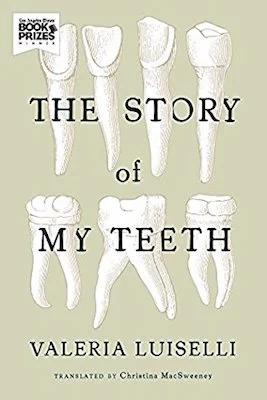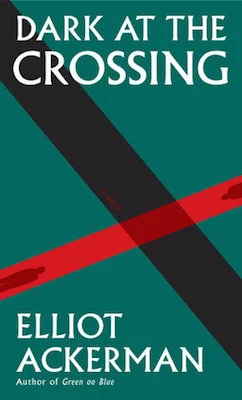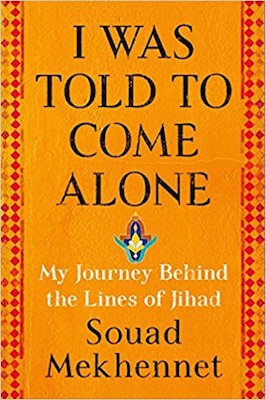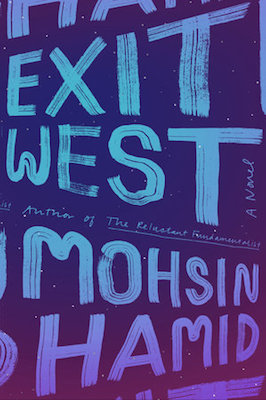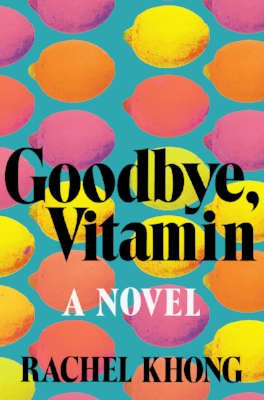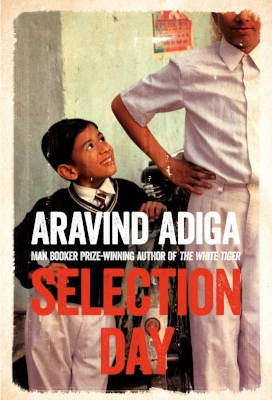By Daniel Ford
2017 was a remarkable year for fiction and nonfiction. From fearless debut novelists to established literary veterans at the top of their games, authors provided the artistic tonic we needed to survive a turbulent time both politically and culturally.
Narrowing down a reading list of 116 titles to just 35 was torture. The final grouping you’re about to read (and judge) could have easily been expanded to include 50 to 60 books. Please feel free to debate my choices and add your own in the comments section or tweet us @WritersBone.
As always, keep reading everyone!
35. Smothered by M.C. Hall
Megan Cassidy Hall deserves a writing award for the faux-comments section alone. Her epistolary exploration of a sensational crime, and how society reacts to it, is both haunting and incredibly sad.
34. Found Audio by N.J. Campbell
I still have this trippy, mind-bending novel in my head. You’ll question your own reality after reading this, but you won’t question N.J. Campbell’s talent.
33. Marcel’s Letters by Carolyn Porter
In a year when we desperately needed as many genuine love stories as possible, Carolyn Porter delivered a great one. Her hunt for the truth behind a World War II survivor’s letters led to a splendid and deeply personal read (as well as a beautiful font!).
32. Apollo 8 by Jeffrey Kluger
Jeffrey Kluger’s return to the Apollo missions provided 2017 with the same burst of hope that Apollo 8 gave 1968 (one of the most turbulent years in American history). A thrilling narrative featuring the crew of Apollo 8 that reminds you of what Americans are capable of when reaching for the same stars.
31. Blurred Lines by Vanessa Grigoriadis
Vanessa Grigoriadis’ curious and wide-ranging reporting in Blurred Lines warmed my journalist soul even while making my skin crawl. Sexual assault on campus remains a complicated, serious issue, and, judging by Grigoriadis’ revelations, will continue to be one until colleges and universities make even more substantial changes to their policies and punishments.
30. An Unkindness of Magicians by Kat Howard
There’s not a bad sentence in this book. Kat Howard should be a household name. She makes you care deeply for all of her characters—even the evil ones—as she’s putting them all through (magical) hell.
29. The Weight of This World by David Joy
David Joy is the poet of broken characters. He gets better and better with every novel. The Weight of This World puts a hole through your heart with a shotgun and uses bourbon to salve the wound.
28. The Last Ballad by Wiley Cash
Ella May Wiggins lives in the past, but would be right at home fighting against our current political demagogues. She’s a reluctant rebel, one driven to protest in order to feed her starving family. A finely drawn supporting cast experiences the novel’s tragic events through myriad personalities, racial identities, and disparate classes. Urgent historical fiction of the highest order.
27. Days Without End by Sebastian Barry
Still amazed at the answers Sebastian Barry gave during our podcast interview earlier this year. He combined his love of the American Civil War stories and his son to deliver a truly remarkable western.
26. The Lost Prayers of Ricky Graves by James Han Mattson
A powerful read about the aftermath of a terrible tragedy perpetrated by a lost and confused teenager. No one comes off looking particularly well in this narrative, told in part through email chains and online chats, but it’s that broken humanness that makes The Lost Prayers of Ricky Graves so devastating and gripping. Top-notch writing.
25. Home Fire by Kamila Shamsie
The first chapter alone should win some kind of literary prize. It sets the tone of the novel and feels so immediate considering the political climate in the United States and around the globe. And that ending…so good!
24. The Story of My Teeth by Valeria Luiselli
The Story of My Teeth further cements Valeria Luiselli as one of the most important voices in fiction and nonfiction. Read this and everything else she’s written.
23. American War by Omar El Akkad
American War is a cautionary tale that seems more and more realistic with each passing day. It’s a visceral, brutal thriller that peels apart the many layers of American dysfunction and partisanship.
22. The Animators by Kayla Rae Whitaker
Mel Vaught and Sharon Kisses were two of my favorite main characters in 2017. Whitaker puts them through hell (some of it self-inflicted), but never leaves them completely hopeless. Author Julie Buntin called this novel “goddamned brilliant” in June’s “Books That Should Be On Your Radar,” and she’s 100% goddamn right.
21. What It Means When A Man Falls From the Sky by Lesley Nneka Arimah
Lesley Nneka Arimah’s short story collection is masterful. I had so much fun listening to Levar Burton read the title story on his podcast "Levar Burton Reads," and then hearing Arimah talk about the collection on a later episode.
20. Hum If You Don't Know the Words by Bianca Marais
Bianca Marais’ storytelling is so mesmerizing that you’ll constantly mutter, “Just one more chapter…” while reading the novel. Robin and Beauty don’t have it easy for much of the narrative, but they’re equal parts fragile and flinty throughout the narrative. Marais’ sparkling debut explores everything from race relations to familial bonds.
19. The Force by Don Winslow
How do you follow up The Cartel, one of the best novels written about the ongoing drug war in Mexico and the Southern United States? If you’re the master of crime fiction, you write The Force, a gripping thriller about a corrupt cop in New York City. A master class in dialogue and plot.
18. The Refugees by Viet Thanh Nguyen
Viet Thanh Nguyen won the Pulitzer Prize for The Sympathizer (#2 on last year’s list), and followed it up with an equally compelling, earthy, and poignant short story collection. He’s rightly become an essential voice on the literary scene.
17. Dark at the Crossing by Elliot Ackerman
It’s been such a joy following Elliot Ackerman’s career as a journalist and novelist. His debut Green on Blue was one of our favorite novels in 2015, and his stellar sophomore effort, Dark at the Crossing, was nominated for this year’s National Book Award.
16. I Was Told To Come Alone by Souad Mekhennet
I Was Told To Come Alone is an extraordinary memoir about a life in journalism. Souad Mekhennet’s journey from inquisitive child to fearless reporter tasked with communicating with jihadists is impossible to forget. Her final chapter is a call to arms for journalists and global citizens alike.
15. The Mothers by Brit Bennett
This is the first book I read in 2017, and it really set the bar high. Bennett’s wisdom and verve are evident on every page. I found myself falling in love with the characters all over again revisiting the novel for this post.
Note: The Mothers was published late in 2016, but I read it in January 2017 so I'm counting it for this year's list. It's my post, I can do what I want!
14. Salt Houses by Hala Alyan
I loved how Hala Alyan structured her debut novel. She wrote from multiple characters’ perspectives and jumped forward several years in the timeline throughout the book. This allowed her to explore themes like the aftermath of war and the development of familial relationships in a really heartfelt way. Her dialogue sang like poetry.
13. Sirens by Joshua Mohr
Joshua Mohr’s fiction is defined by brutal honesty. He upped the stakes by telling his own sordid (Mohr’s adjective of choice) tale. Make sure you listen to Mohr read from a section in Sirens (sure to elicit both laughter and tears) from our live event at Porter Square Books earlier this year. Very much looking forward to the follow up Model Citizen!
12. Stephen Florida by Gabe Habash
I finished Gabe Habash’s insanely well written debut in one sitting. Spending time in Stephen Florida’s head was like sitting on top of a runaway freight train.
11. Mrs. Fletcher by Tom Perrotta
The only thing I enjoyed more than this steamy satire was discussing it with Dave Pezza for #NovelClass. I loved the way Perrotta depicted his middle-aged female lead and how he crafted her eclectic supporting cast.
10. Marlena by Julie Buntin
As you’ve probably noticed, I’m a sucker for coming-of-age stories. Julie Buntin’s Marlena is one of the best ever written, and one that makes me want to up my writing game. It’s been rightly feted all year, and I’d love to see this story on screen.
9. Exit West by Mohsin Hamid
“Moving,” “romantic,” “tender,” and “violent” are all words I used to describe Exit West back in March. One of the central questions Hamid attempts to answer is, “Can new love blossom and survive in a war zone?” His answers are as poetic as they are heart breaking. And it all starts with this stellar opening line: “In a city swollen by refugees but still mostly at peace, or at least not yet openly at war, a young man met a young woman in a classroom and did not speak to her.”
8. Little Fires Everywhere by Celeste Ng
Celeste Ng has no rival when it comes to crafting characters. Those that populate Little Fires Everywhere are deliciously damaged. Tangled small town drama has never been this illuminating.
7. Sing, Unburied, Sing by Jesmyn Ward
Jesmyn Ward’s National Book Award-winning Sing, Unburied, Sing has its own heartbeat that you feel through its spine. All the ghosts that her characters are living with feel like they’re right next to you as you read.
6. Lucky Boy by Shanthi Sekaran
Soli, one of Lucky Boy’s main characters, is one of the most memorable, tough, and fierce mothers in fiction. You’ll find yourself rooting just as hard for her brilliant counterpart Kavya. Between them is a young boy unaware of the passionate struggle to claim him on both sides of the U.S.-Mexican border. I read this early in 2017 when the first of President Trump’s Muslim bans was enacted. It was a powerful read then, and remains one now in the face of continued xenophobia and discrimination.
5. Spaceman of Bohemia by Jaroslav Kalfar
Deep space, an astronaut tortured by the romance he left behind, and a spider that may or may not be imaginary. What’s not to love? Plus, my favorite cover of the year (not biased at all by the giant coffee cup)!
4. Goodbye, Vitamin by Rachel Khong
I’m still amazed that Rachel Khong packed so much heart, humor, and human themes into such a short novel. Khong is one of my favorite risk-taking debut novelists.
3. What We Lose by Zinzi Clemmons
Speaking of risk-takers, Zinzi Clemmons wrote an innovative, emotionally devastating novel that I continually re-read to get inspired. She’s a must-follow on Twitter as well.
2. All Grown Up by Jami Attenberg
I, perhaps unfairly, have compared every book I’ve read in 2017 to Jami Attenberg’s flawless All Grown Up. Attenberg told me in a podcast interview earlier this year that she wanted to “write something funny and contemporary, and loose and bittersweet.” She succeeded on all levels. This novel will be on my annual re-read list for years to come.
1. Pachinko by Min Jin Lee
Epic in scope and passionately written, Pachinko has been my number one since the day I started reading it. Min Jin Lee is a treasure. “History has failed us, but no matter,” my favorite opening line of 2017, still gets me.
Honorable Mention
Setting Free the Kites by Alex George, The River of Kings by Taylor Brown, Unsub by Meg Gardiner, What We Build Upon the Ruins by Giano Cromley, The Impossible Fortress by Jason Rekulak, Garden of Lost and Abandoned by Jessica Yu, She Rides Shotgun by Jordan Harper, The Wanderers by Meg Howrey, The Good Assassin by Paul Vidich, The River at Night by Erica Ferencik, Exit Strategy by Steve Hamilton, Trajectory by Richard Russo, Fierce Kingdom by Gin Phillips, Have You Met Nora? by Nicole Blades, White Fur by Jardine Libaire, Colorado Boulevard by Phoef Sutton, Hollywood Homicide by Kellye Garrett, Borne by Jeff VanderMeer, My Absolute Darling by Gabriel Tallent, Strange Weather by Joe Hill, In the Distance by Hernan Diaz, The Names of Dead Girls by Eric Rickstad, One of the Boys by Daniel Magariel, Wedding Toasts I'll Never Give by Ada Calhoun













